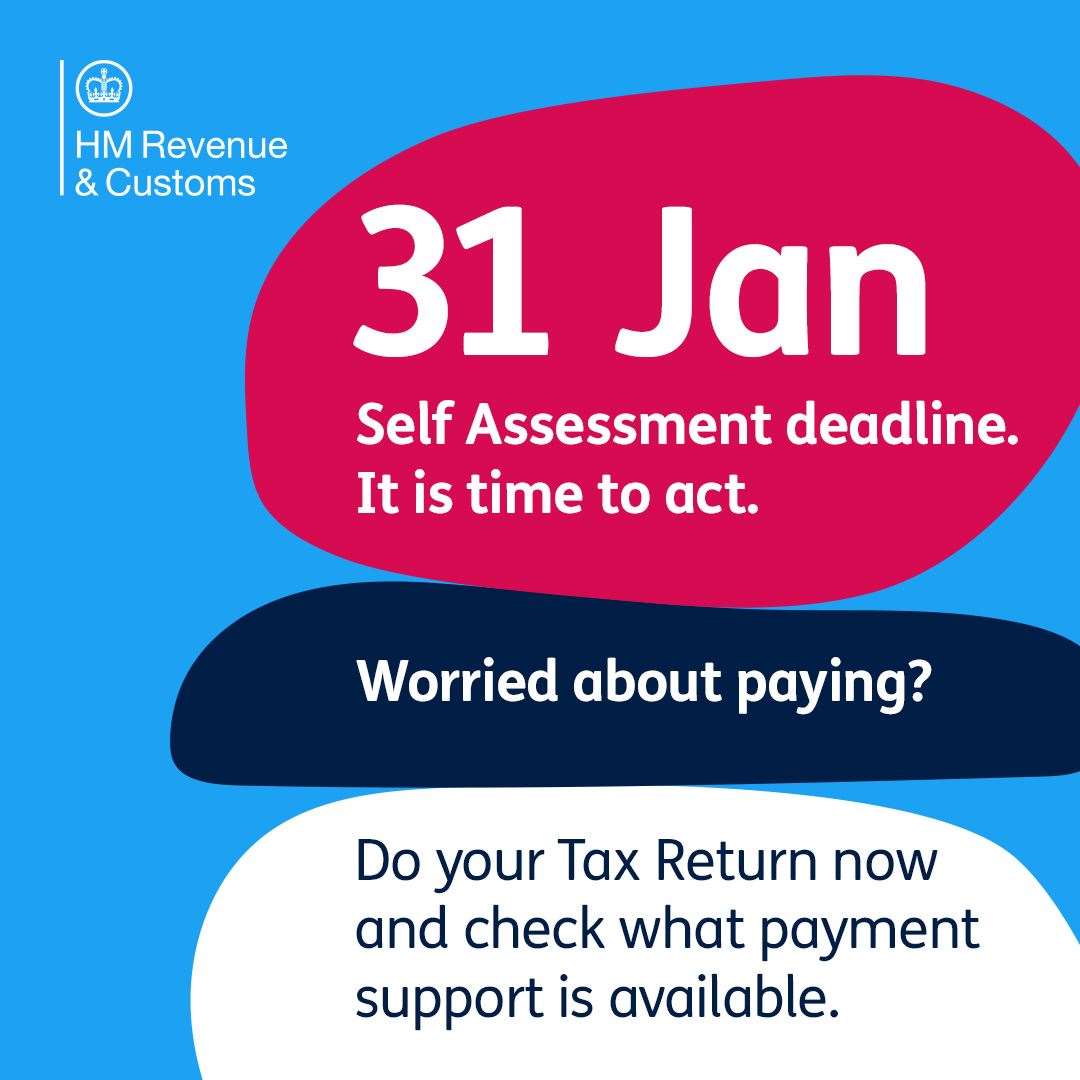Self-assessment Filing Deadline has been Extended by a Month (28 February 2022)
08/01/2022 - 6 minutes readWhat changes were announced by HMRC on 6th Jan 2022?
HMRC has waived late filing and late payment penalties for self-assessment taxpayers by one month, effectively delaying the Self-assessment filing deadline to 28 February 2022.
The tax authority has announced that it will not give out financial penalties for late filing and late payments for self-assessment tax returns which will give more time for taxpayers to complete and submit 2020-21 tax return online and pay any tax due.
Normally, late filing penalties are applied to all returns due but filed after the 31 January self-assessment filing deadline. Those penalties are cancelled if the taxpayer has a reasonable excuse for filing late. However, this year, like last year, HMRC is not charging late filing penalties for a month to help taxpayers and agents who are unable to meet the usual self-assessment filing deadline. Late filing penalties will not be charged for online tax returns received by 28 February.
The payment deadline for Self-Assessment is 31 January and interest will be charged from 1 February on any amounts outstanding. Normally a 5% late payment penalty is charged on any unpaid tax that is still outstanding on 3 March. This year, like last year, HMRC is giving taxpayers more time to pay or set up a payment plan.
Self-Assessment taxpayers will not be charged the 5% late payment penalty if they pay their tax or set up a payment plan by midnight on 1 April. They can pay their tax bill or set up a Time to Pay arrangement online at GOV.UK.
Setting up a Time to Pay arrangement
The existing Time to Pay service allows any individual or business who needs it the option to spread their tax payments over time. Self-Assessment taxpayers with up to £30,000 of tax debt can do this online once they have filed their return.
The 2020 to 2021 tax return covers earnings and payments during the pandemic. Taxpayers will need to declare if they received any grants or payments from the COVID-19 support schemes up to 5 April 2021 on their Self-Assessment, as these are taxable, including:
- – Self-Employment Income Support Scheme
- – Coronavirus Job Retention Scheme
- – other COVID-19 grants and support payments such as self-isolation payments, local authority grants and those for the Eat Out to Help Out scheme
We cover this in a separate article here.
The £500 one-off payment for working households receiving tax credits should not be reported in Self Assessment.
Self-assessment filing deadline – What is the new timeline?
- – 31 January – Self-assessment filing deadline & payment deadline.
- – 1 February – interest starts to accrue on any outstanding tax bills.
- – 28 February – last date to file any late online tax returns to avoid a late filing penalty.
- – 1 April – last date to pay any outstanding tax or make a Time to Pay arrangement, to avoid a late payment penalty.
- – 1 April – last date to set up a self-serve Time to Pay arrangement online.

There is no change to the self-assessment filing deadline or payment deadline and other obligations are not affected.
This means that:
- – interest will be charged on late payment. The late payment interest rate is 2.75%
- – a return received online in February will be treated as a return received late, with a valid reasonable excuse for the lateness. This means that:
- there will be an extended enquiry window
- for returns filed after 28 February the other late filing penalties (daily penalties from 3 months, 6 and 12-month penalties) will operate as usual
- a 5% late payment penalty will be charged if tax remains outstanding, and a payment plan has not been set up, by midnight on 1 April 2022. Further, late payment penalties will be charged at the usual 6 and 12-month points (August 2022 and February 2023 respectively) on tax outstanding where a payment plan has not been set up.
Where tax credits customers are unable to report their final/actual income for the 2020 to 2021 tax year by 31 January 2022, they should report the figure as soon as possible after 31 January. In most cases, HMRC will update the income used to calculate finalised entitlement to tax credits if the delay is due to the impact of COVID-19.
Self-employed taxpayers who need to claim certain contributory benefits soon after 31 January 2022, need to ensure their annual Class 2 National Insurance contributions (NICs) are paid on time. This is to make sure their claims are unaffected. Class 2 NICs are included in the 2020 to 2021 Balancing Payment that is due to be paid by 31 January 2022. Benefit entitlements may be affected if they:
- – couldn’t pay their Balancing Payment by 31 January 2022
- – have entered into a Time to Pay arrangement to pay off the Balancing Payment and other Self Assessment tax liabilities through instalments
Affected taxpayers should contact HMRC on 0300 200 3822 for help as soon as possible.
How can MCL Accountants help?
Contact MCL Accountants on 01702 593 029 if you have any queries on the self-assessment filing deadline or if you need any assistance with the preparation and submission of your business accounts or self-assessment tax returns to HMRC.
- ABOUT
- REQUEST A QUOTE
Ishan provides financial management, taxation and transactional advice to business entities of all sizes. His expert areas include statutory compliance, business taxation, personal tax & transactional processing and systems. Industry sectors include professional services, retail, hospitality and entertaining & media and advertising services.

0 Comments